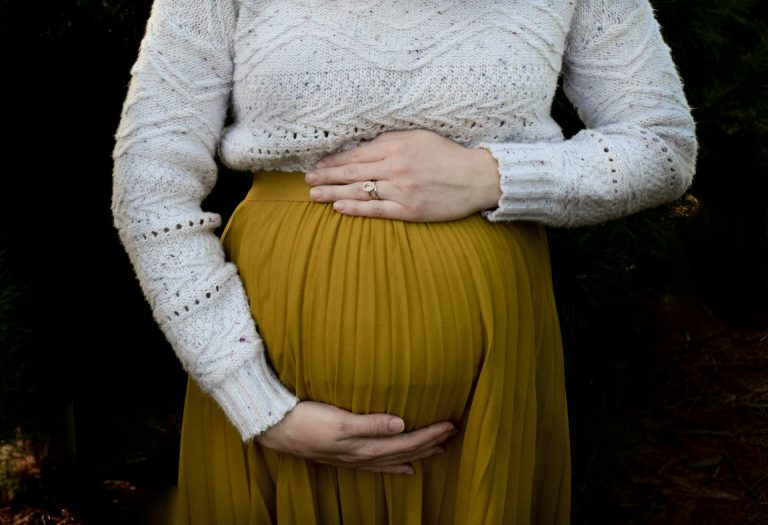What is Baby’s Activity in The Womb at 4 Months?

Many parents-to-be are curious about their baby’s activity as their four-month pregnant belly becomes noticeable. You might wonder what movements to expect and when you’ll feel them.
Your little one is already active, even if you can’t sense it. We’ll look at your baby’s movements at four months.
You’ll learn about early fetal activity, how it might feel, and what affects you when you start noticing it. We’ll also discuss how these movements relate to your baby’s growth and health.
From subtle flutters to more noticeable taps, your baby’s movements are a key part of their development. Let’s explore the world of fetal activity at this important stage in your pregnancy.
Understanding Fetal Movements at 4 Months
Early Movements
Around the 16th to 18th week of pregnancy, your baby begins making small, gentle movements. These early motions are often so light that you might not notice them initially.
Some women describe these initial sensations as flutters or soft taps inside their belly. It’s important to remember that every pregnancy is unique, and you might feel these movements earlier or later than others.
Development Milestones
At four months, your baby has grown to about 4-5 inches long, roughly the size of an avocado. This growth significantly changes their physical abilities.
Their muscles are developing rapidly, allowing for more coordinated and noticeable movements. Your baby can now move their arms and legs, and they might even start to suck their thumb.
As your baby’s nervous system matures, their movements become more purposeful. They explore their environment, stretch their limbs, and even practice facial expressions. These activities are crucial for their physical and neurological development.
Baby Movements and What They Feel Like
“Quickening” refers to the first movements you feel from your baby. This exciting milestone usually occurs between 16 and 25 weeks of pregnancy. For first-time mothers, it might happen closer to 25 weeks, while those who’ve been pregnant might notice it earlier.
These initial movements are often described in various ways. Some women liken them to the feeling of butterflies in their stomach, similar to nervousness or excitement.
Others compare it to the bubbling of carbonated drinks or gentle taps from inside. Some might even mistake these early movements for gas or digestive activity.
Variability in Movements
It’s important to note that fetal movements at this stage can be inconsistent and vary in frequency. You might feel several movements one day and then nothing the next. This inconsistency is normal and doesn’t necessarily indicate any problems.
Factors Influencing Movement Perception
1. Placenta Position
The location of your placenta can significantly impact how you perceive your baby’s movements. An anterior placenta, which is attached to the front wall of the uterus, can act as a cushion between your baby and your abdominal wall.
This might make it harder to feel movements, especially in the early stages. However, as your baby grows and their movements strengthen, you’ll likely start feeling them more clearly, regardless of placenta position.
2. Maternal Activity Levels
Your activity level can affect when and how you notice your baby’s movements. Many women find that they feel their baby move more when they’re at rest or lying down.
This is partly because you’re more focused on your body and less distracted by other activities.
Some women notice increased movement after eating, particularly if they’ve consumed something sweet. The sugar in your bloodstream can give your baby a boost of energy.
3. Baby’s Growth and Space in the Womb
As your baby grows, their movements become more noticeable. At four months, your baby has plenty of room to move around in the amniotic fluid.
You’ll feel more defined movements, like kicks and rolls, as they get bigger. However, as space becomes limited towards the end of pregnancy, the type of movements might change, becoming more like stretches or wiggles rather than big kicks.
When to Expect More Regular Movements
Pattern Development
While you might start feeling movements at four months, regular movement patterns typically don’t establish until around 28 weeks of pregnancy.
Before this time, your baby’s movements might seem random and unpredictable. As your pregnancy progresses, you’ll likely notice more consistent patterns in your baby’s active periods.
Kick Counts
At four months, it’s not necessary to keep track of your baby’s movements formally. However, as you progress in your pregnancy, usually around 28 weeks, your healthcare provider might suggest monitoring your baby’s movements more closely.
This practice, often called “kick counts,” involves tracking how long it takes to feel 10 movements. It’s a simple way to ensure your baby is active and healthy.
Significance of Fetal Movements

1. Bonding
Feeling your baby move is often one of the most exciting parts of pregnancy. These movements provide a tangible connection between you and your growing baby.
Many parents-to-be find that feeling these movements helps them bond with their baby even before birth. Partners can also share in this experience by feeling the baby’s movements from the outside, usually a bit later in the pregnancy.
2. Indicator of Health
Regular fetal movements are generally a good sign of your baby’s well-being. They indicate that your baby is growing and developing as expected.
While the pattern and frequency of movements vary, a consistently active baby is usually healthy. However, it’s important to remember that these movements might not be regular or noticeable at four months.
3. When to Contact a Doctor
While it’s normal not to feel consistent movements at four months, it’s a good idea to contact your healthcare provider if you haven’t felt any movement by the end of your fifth month (around 22-24 weeks).
They might want to check your baby’s growth and development to ensure everything progresses.
Conclusion
As you reach the end of your fourth month of pregnancy, your baby’s movements are becoming more real and exciting.
While you might not feel them consistently, your little one is growing and developing rapidly. These early flutters and taps begin a beautiful connection between you and your baby.
Remember, every pregnancy is unique, and there’s no need to worry if you haven’t felt movement yet.
As your baby grows, their movements will become more noticeable and regular. Enjoy this special time and the amazing changes happening in your body.
If you have any concerns about your baby’s movements, don’t hesitate to contact your healthcare provider. They’re there to support you through this journey. Keep staying tuned to your body and your baby – the best is yet to come!






